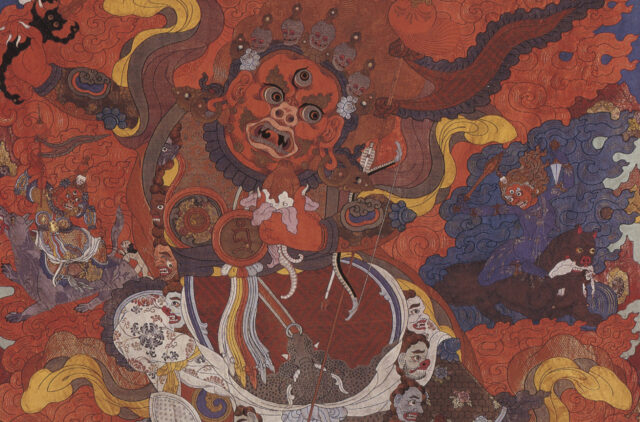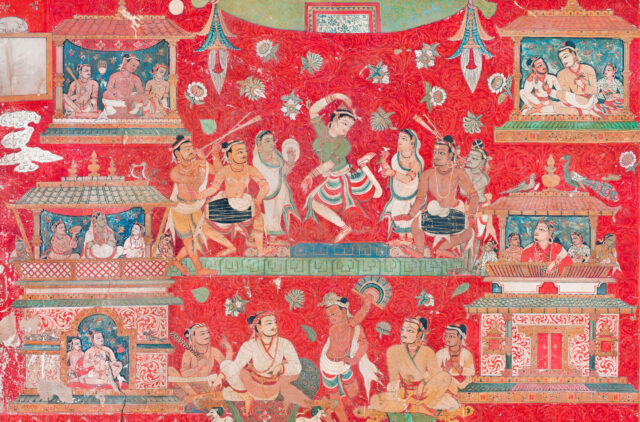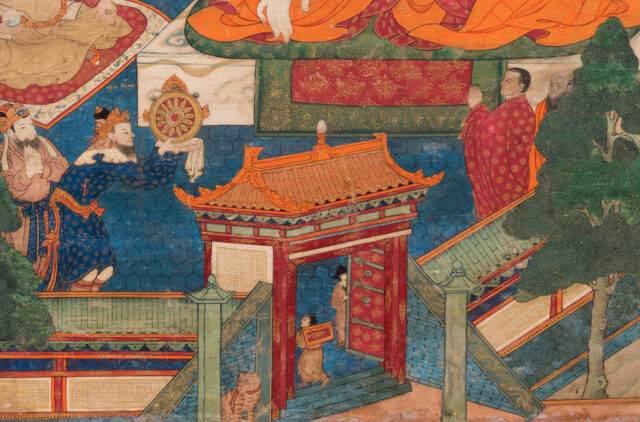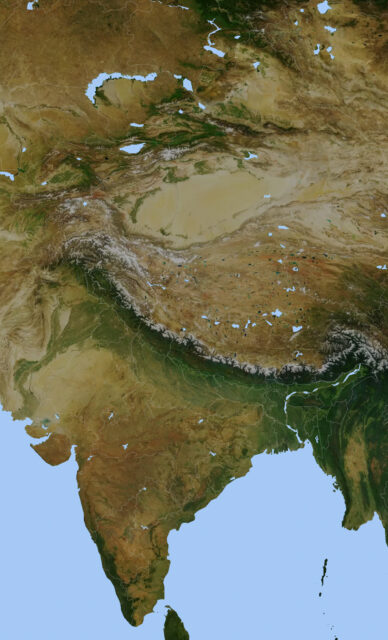Stay connected. Sign up for the Rubin Museum’s monthly newsletter to receive updates about upcoming exhibitions, programs, digital features, and more.
SubscribeMongol Empire
Mongol Empire
The Mongol Empire (ca 1206–1368) was the largest contiguous empire in world history, founded by Chinggis Khan (1162–1227), which at its height controlled most of Eurasia, from the Korean peninsula to Central Europe. The Mongols conquered the Tanguts in 1227 and absorbed Tibetan regions in the 1240s, granting power over central Tibet to the Sakya Buddhist hierarchs in what is characterized as a priest-patron relationship. In 1260, Qubilai Khan declared himself Great Khan, which was contested, fracturing the Mongol Empire into four independent regimes. Qubilai remained the ruler of most of Asia establishing the Yuan dynasty. Mongol rulers of Yuan, and the first six rulers the Ilkhanate in the Middle East, starting with its founder Hülegü, were also patrons of Tibetan Buddhism.



